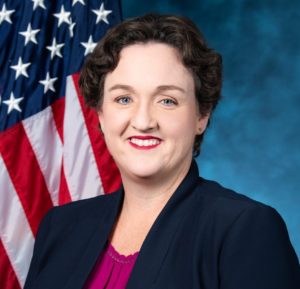The political environment leading up to the 2018 midterm elections was ripe for women…
There’s only 1 single mom in Congress. That’s not enough.

Last night’s “On Politics with Lisa Lerer” newsletter from the New York Times featured an interview with Congresswoman Katie Porter, who is self-quarantining with her three children after experiencing symptoms associated with coronavirus. Lerer intros the interview with a startling fact: Congresswoman Porter is the only single mother in Congress. She is also the first single mother in Congress raising young children while serving.
Given the number of single mothers in the United States, this is a serious lack of representation. In the US, about one-in-five children are living with a single mother, and 55% of single mothers are women of color. Right now, there are no single mothers of color in Congress (Porter is white).
And it’s indisputable that having that experience at the decision-making table brings a new and important perspective. This story from Porter’s interview shows just that:

That’s the perspective of single moms and single dads and what self-quarantine is going to mean for them. It is something I haven’t heard a lot of talk about. I got sick on Thursday night. […]. And I called the doctor on the nurse’s line on Friday morning and they told me to isolate in my room. […] And I said, “Well, I can’t do that. I’m a single mom. There’s no one to get the food. There’s no one.”
So why aren’t there more single moms in elected office?
As Porter’s story above illustrates, single moms with young children often have to navigate additional barriers when managing day-to-day life, and it’s the same when running for office. In research from the Barbara Lee Family Foundation, a solid majority of voters say they have modest, serious, or very serious doubts about a single mother’s ability to do the job when elected. While all mothers of young children face doubts about their ability to balance the competing priorities of their families and their constituents, single mothers face more. Voters recognize that there is a double standard for moms, but actively participate in it and are conscious of doing so.
While this is a challenge on the campaign trail, it’s certainly not insurmountable. Voters respond to women candidates who are matter-of-fact, and address questions about family life directly and confidently without being defensive or using excuses. It’s about striking the right balance: sharing too much information hurts as much as sharing too little information. People need reassurance that the candidate’s professional and personal lives are both under control, rather than substantive examples of the trade-offs made in order to manage both.
Most importantly, after sharing personal values and experiences related to family, women candidates should get back to the issues. Women have the opportunity to be 360-degree candidates, and use the whole of their experience to relate with voters, and that includes their experience as a single mother.






